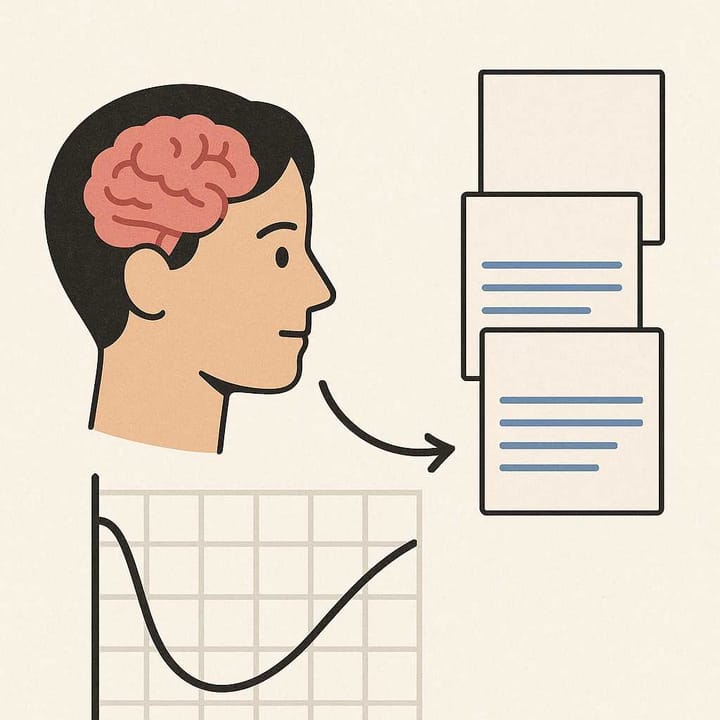Conquering Procrastination: A Comprehensive Guide for ACA Students
Procrastination plagues even the most ambitious ACA students. Discover the hidden causes and practical strategies to overcome this productivity killer and ace your studies with confidence.

Understanding the Roots of Procrastination
Procrastination is a complex beast that often masquerades as simple laziness or disorganisation. However, for ACA students, the reality is far more nuanced and deeply rooted in psychological factors. At its core, procrastination often stems from fear—a multifaceted emotion that can paralyse even the most dedicated learners.
One of the primary fears that fuel procrastination is the fear of difficulty. The sheer volume of material that ACA students must master can be overwhelming. The prospect of diving into complex financial regulations, intricate accounting standards, and challenging tax laws can be daunting. This fear of encountering difficult content can lead students to delay their study sessions, hoping that somehow the material will become less intimidating with time—a hope that, unfortunately, rarely materialises.
Equally potent is the fear of failure. ACA exams are notoriously challenging, and the stakes are high. The thought of putting in countless hours of study only to fall short of the required standard can be paralysing. This fear can manifest as a reluctance to begin studying, as if not starting somehow protects one from the possibility of failure.
Interestingly, some students may even experience a fear of success. This might seem counterintuitive, but the prospect of passing exams and progressing in one's career can bring its own set of anxieties. Success often means increased responsibilities, higher expectations, and stepping out of one's comfort zone. For some, procrastination becomes a subconscious way of avoiding these new challenges.
Another root cause of procrastination is a lack of clear goals. When objectives are nebulous or poorly defined, it becomes difficult for the mind to visualise a path forward. Without a clear destination, the journey feels aimless, leading to a lack of urgency and motivation. ACA students who haven't set specific, measurable, achievable, relevant, and time-bound (SMART) goals for their studies may find themselves drifting without purpose, making it easy to put off important tasks.
Perfectionism, often considered a positive trait, can be a significant contributor to procrastination. The desire to produce flawless work or to understand concepts perfectly before moving on can lead to endless tweaks and revisions. This pursuit of perfection can result in tasks taking far longer than necessary or, in some cases, never being completed at all. For ACA students, this might manifest as over-preparing for one topic at the expense of others or spending too much time on a single practice question instead of covering a broader range of material.
Understanding these root causes is crucial for ACA students looking to overcome procrastination. By recognising these patterns in their own behaviour, students can begin to take control of their study habits and productivity. It's about being honest with oneself and acknowledging that procrastination is not a character flaw but a complex behaviour with underlying causes that can be addressed.
Effective Techniques to Combat Procrastination
Armed with an understanding of why we procrastinate, ACA students can employ a variety of practical techniques to overcome this productivity-sapping habit. These strategies are designed to break through mental barriers and create momentum in your studies.
The Egg Timer Method is a simple yet effective technique that capitalises on the psychological principle that engagement often follows initiation. Research shows that people generally become absorbed in a task if they can push through the first 3 to 5 minutes. However, the process of getting started can easily consume 10 minutes or more. To combat this, set a timer for just 5 minutes and commit to working until it goes off. This short duration feels more manageable than facing hours of study, and you'll often find that once you've begun, continuing isn't as daunting as you initially thought.
The Pomodoro Technique is a time-tested method that has helped countless students maintain focus and avoid burnout. The process involves setting a timer for 25 minutes and dedicating that time solely to studying. After this focused session, take a 5-minute break. Repeat this cycle four times, then reward yourself with a longer break of 15-30 minutes. This technique is particularly effective for ACA students as it breaks study sessions into manageable chunks, allowing for intense focus followed by necessary rest periods.
Breaking tasks into smaller, more digestible chunks is another powerful strategy. Instead of facing the daunting prospect of "Studying for ACA exams," break it down into specific, actionable items. For instance, "Read chapter on VAT," "Summarise key points on group relief," or "Complete practice questions on financial reporting." These smaller tasks feel less intimidating and are easier to start, providing a sense of accomplishment as you tick them off your list.
Accountability can be a powerful motivator. Share your study goals with a friend, family member, or fellow ACA student. Better yet, form a study group or pair up with a study buddy. Regular check-ins on each other's progress can provide the external motivation needed to stay on track. Knowing that someone else is aware of your goals and expecting updates can spur you into action, even on days when your internal motivation is lacking.
Leveraging Rewards and Environment for Success
Implementing a reward system can significantly boost your motivation to tackle challenging study sessions. Set up clear, achievable goals and pair them with appropriate rewards. For example, if you complete a thorough review of a difficult accounting standard, allow yourself an episode of your favourite series or some guilt-free time on social media. However, it's crucial to ensure that the reward is proportionate to the task completed. Overindulgence in rewards can lead to further procrastination, so strike a balance that motivates without derailing your study schedule.
The environment in which you study can have a profound impact on your productivity and tendency to procrastinate. Over time, your usual study space may become associated with stress, boredom, or distraction. Changing your study location can provide a fresh perspective and renewed energy. Consider moving to a different room in your home, or venture out to a quiet café or library. The change of scenery can stimulate your mind and make the prospect of studying more appealing.
Creating a dedicated study space that is free from distractions is also crucial. Ensure your study area is well-lit, comfortable, and equipped with all the necessary materials. Remove potential distractions like your phone or unnecessary browser tabs. Some students find that background noise, such as ambient music or nature sounds, helps them focus, while others prefer complete silence. Experiment to find what works best for you.
Cultivating a Growth Mindset
Overcoming procrastination is not just about employing techniques; it's also about shifting your mindset. Cultivate a growth mindset that views challenges as opportunities for learning and improvement rather than insurmountable obstacles. Embrace the idea that your abilities can be developed through dedication and hard work.
When faced with a difficult topic or a challenging practice question, instead of procrastinating, try reframing it as a chance to expand your knowledge and skills. Remind yourself that struggle is a natural part of the learning process and that each study session, regardless of how difficult, is bringing you closer to your goal of becoming a qualified accountant.
Additionally, practice self-compassion. Procrastination often comes with a hefty dose of self-criticism, which can create a negative feedback loop. Be kind to yourself when you slip up (in the same way that you would be to a friend), recognise it as a normal part of the process, and focus on getting back on track rather than dwelling on perceived failures.
Remember, overcoming procrastination is a skill that can be developed over time. With consistent effort and the application of these strategies, you can significantly improve your productivity and make steady progress towards your ACA.




Comments ()